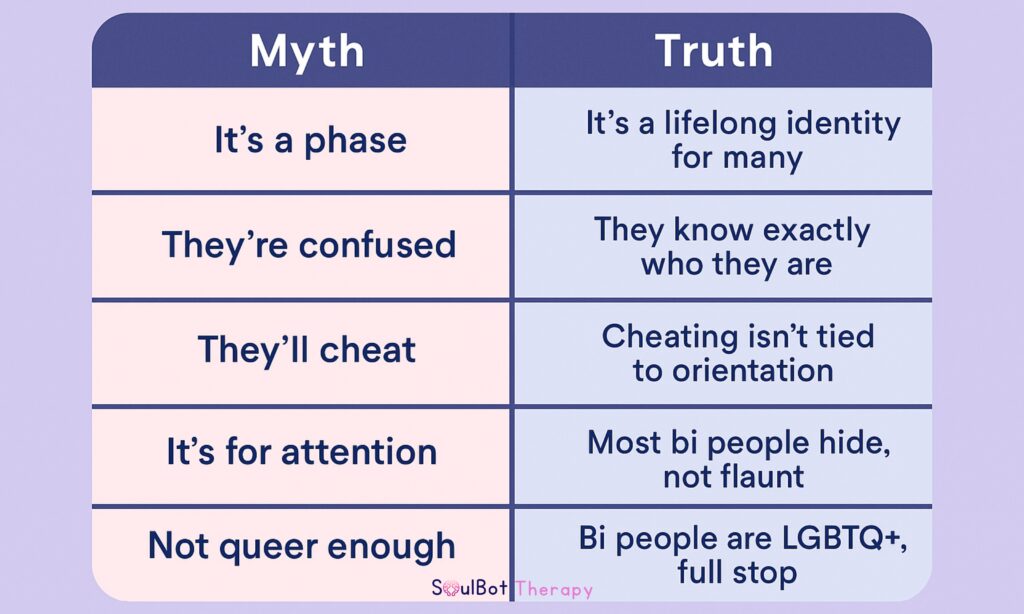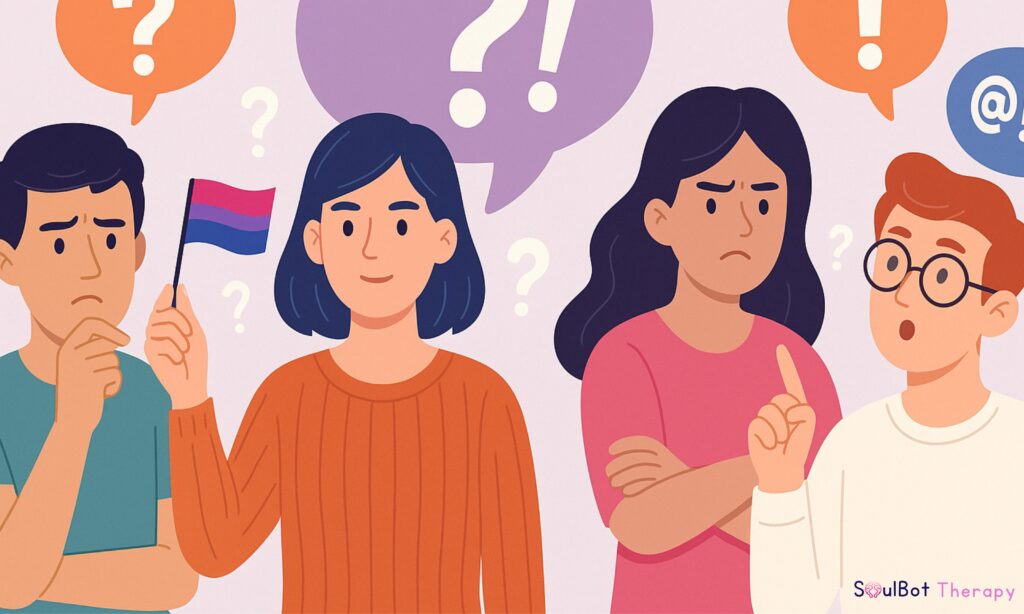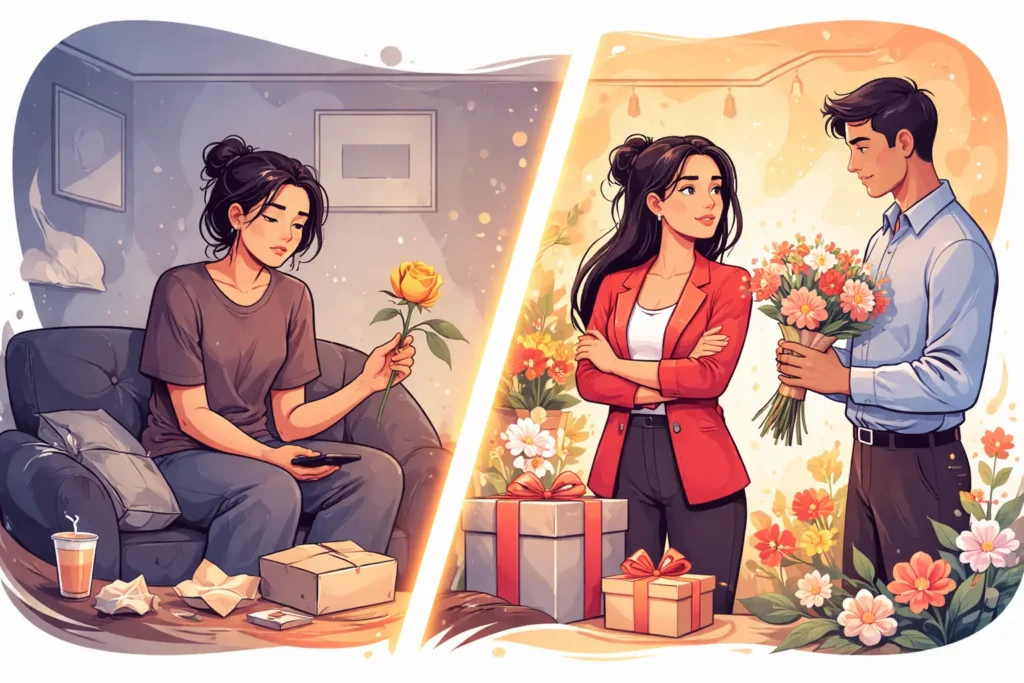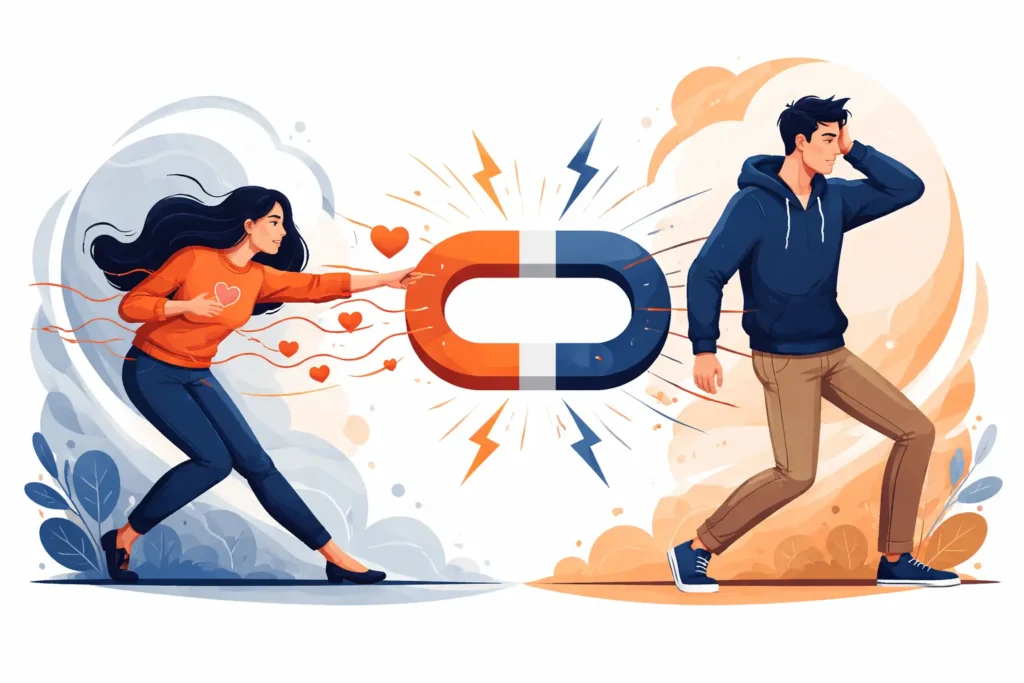Bisexuality myths still shape how society sees and misjudges people who identify as bi.
You’ve heard them: “It’s just a phase,” “They’re confused,” “They’re doing it for attention,” or worse, “They’ll cheat.”
These beliefs don’t just hurt, they isolate.
They make bisexual people feel invisible, invalid, or like they’re constantly having to prove themselves.
In this blog, we’ll break down the most common myths about being bisexual, explain where they come from, and offer tools, including AI therapy support, to help anyone exploring or living their bi identity feel affirmed, not erased.
📊 Factual Insight
🔎 The Trevor Project’s 2022 National Survey found that bisexual youth reported significantly higher levels of anxiety, depression, and isolation than gay or lesbian youth — largely due to bi-erasure and dual stigma.
Why Are There Still So Many Bisexuality Myths?
Despite growing visibility, bisexual people often face invalidation from both sides:
- From straight communities, who see it as indecision
- From queer spaces, where bi people may be seen as “not queer enough”
This double discrimination creates a sense of invisibility, a concept called bi-erasure.
Bisexuality myths aren’t just outdated, they’re harmful. They reinforce shame, silence, and self-doubt.
Most Common Myths About Being Bisexual (Busted)
❌ “It’s just a phase.”
✅ Bisexuality is a valid sexual orientation.
Many people know their identity from a young age, while others discover it later. Change doesn’t mean confusion. It means evolution.
❌ “They’re confused.”
✅ No more than anyone else exploring their truth.
Bisexuality is the ability to be attracted to more than one gender, not a state of indecision.
❌ “Bisexuals are more likely to cheat.”
✅ Infidelity is about integrity, not identity.
Attraction ≠ action. Monogamy or non-monogamy is a relationship choice, not an orientation trait.
❌ “They’re doing it for attention.”
✅ Bisexuality isn’t a performance.
Bi people often downplay their identity to avoid judgment, not exaggerate it.
❌ “They’re not really queer.”
✅ Bisexuality is part of the LGBTQ+ spectrum.
Whether you’re dating someone of the same gender or not, your identity doesn’t become less valid.
👉 Take the Orientation Test (Coming Soon)
Where Do These Myths Come From?
Many bisexual identity misconceptions come from:
- Media stereotypes: Bisexual characters as flaky or promiscuous
- Historical invisibility: Bi people erased in both queer and straight narratives
- Cultural discomfort with nuance and fluidity
Society struggles with “both/and,” but sexuality isn’t either/or.
The Truth About Bisexual Identity and Expression
Bisexuality doesn’t look one way. Some people are:
- Attracted to different genders at different times
- Emotionally attracted to one gender, physically to others.
- Fluid across their life journey
And it’s okay if your identity doesn’t fit a box. You don’t owe anyone a fixed label or explanation.
Read more about bisexual visibility and mental health impact.How Bisexual Identity Impacts Mental Health?
Bi people often face:
- Internalized biphobia
- Invalidation from partners or the community
- Feeling “not enough” for either side
- Identity policing (“Are you really bi?”)
These experiences can increase anxiety, depression, and relationship strain even if they’re unspoken.
How AI Therapy & Mental Health Tools Can Support Bi Folks?
Exploring your sexuality or affirming your identity requires safety, validation, and space to process. That’s where AI mental health tools like SoulBot come in.
✅ With SoulBot, you can:
- Reflect in private, without judgment
- Journal your emotional responses to erasure or invalidation.
- Track confidence in identity over time
- Get affirming prompts and check-ins when you feel unseen.
Think of it as your digital ally in healing and clarity.

You Deserve to Be Seen Exactly As You Are
- You don’t have to prove you’re bi.
- You don’t have to perform it.
- You don’t need to justify it to anyone.
Your identity is valid, real, and enough. Period.
👉 Talk to SoulBot — Your AI Mental Health Companion








